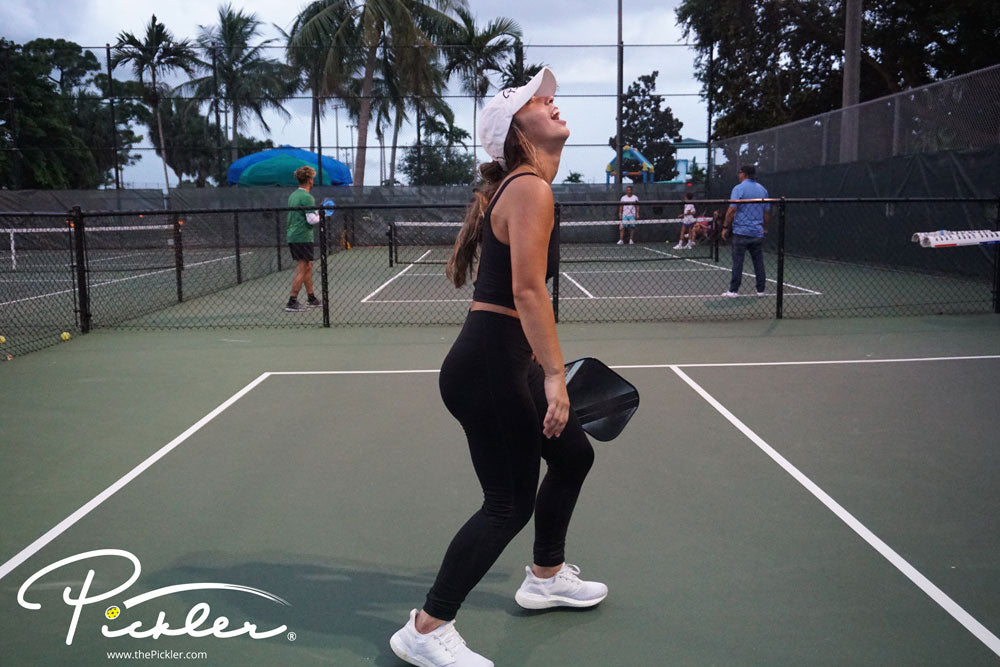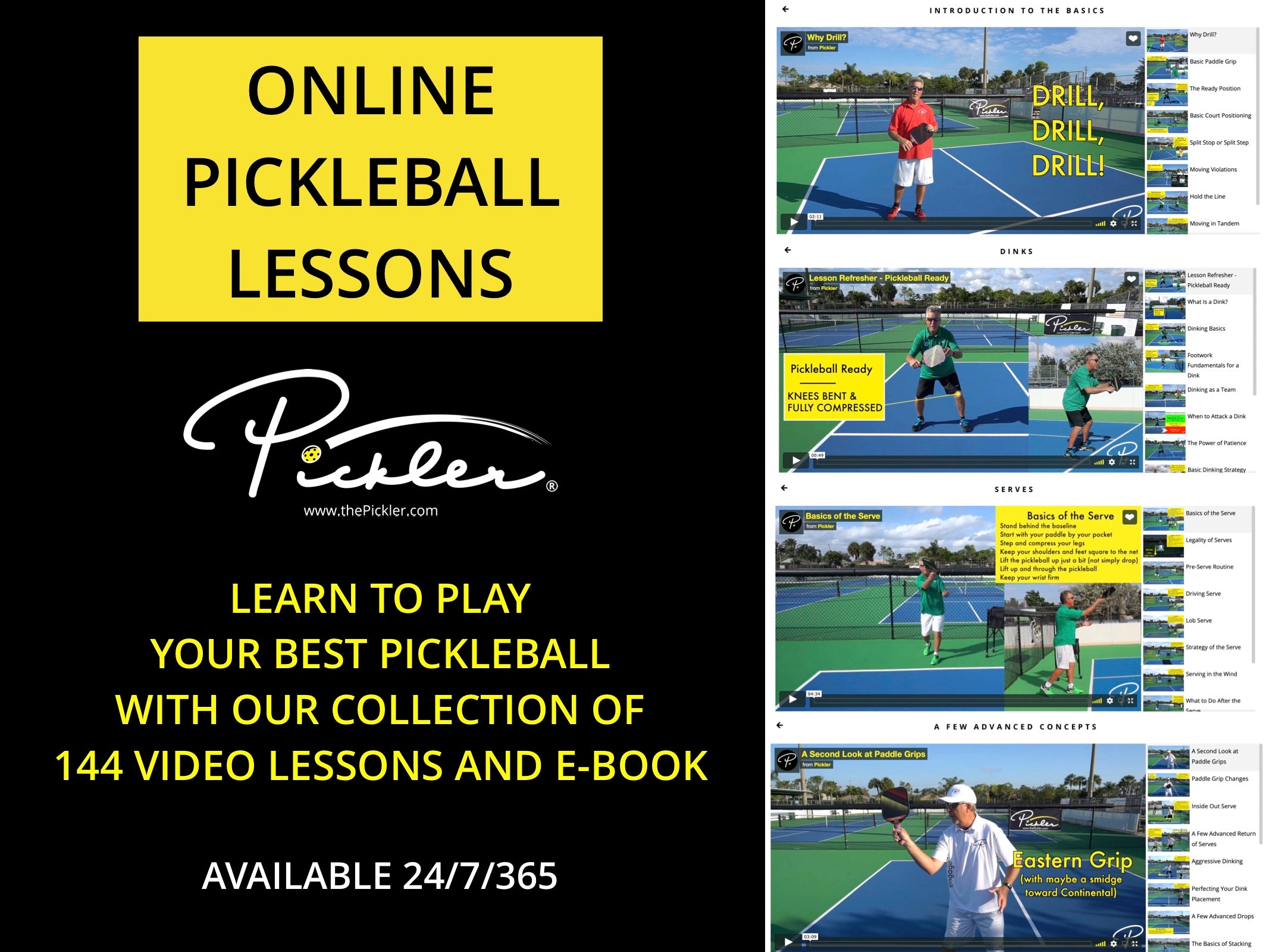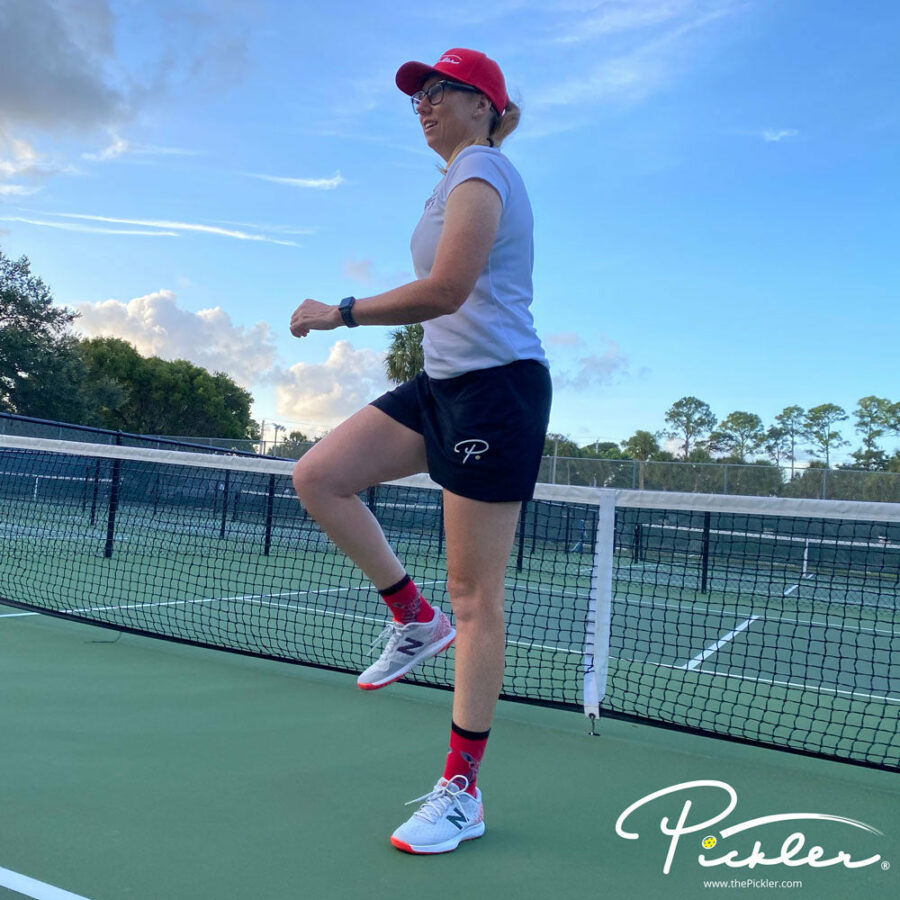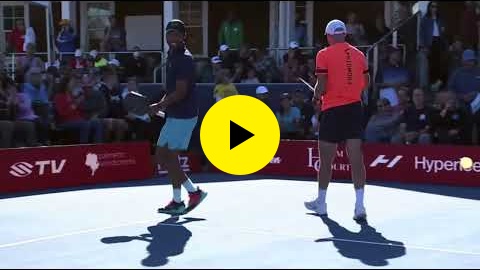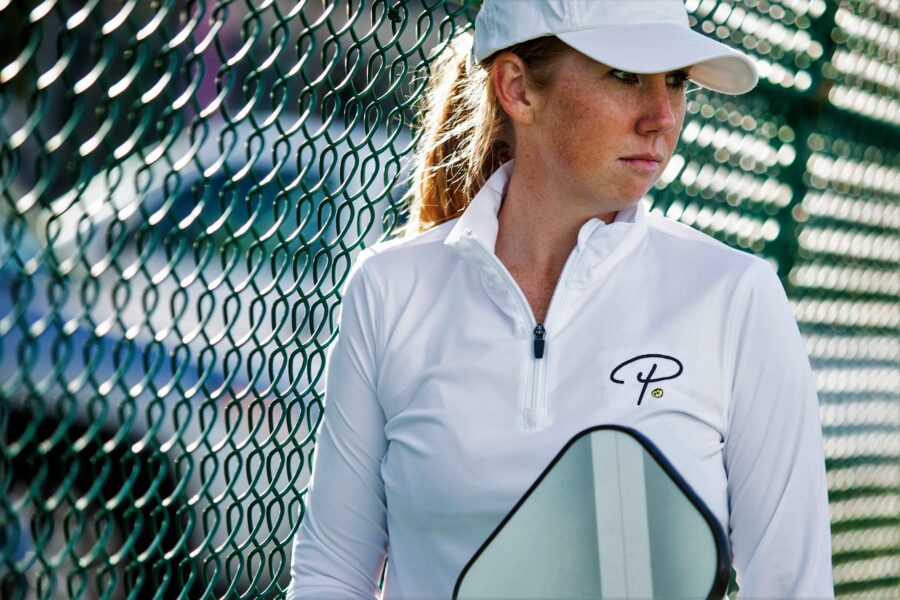As you know, the sport of pickleball has the two-bounce rule, which means that both the serve and the return of serve must bounce. Further, the sport of pickleball is won or lost at the Non-Volley Zone line (also known as the Kitchen line)—in other words, the chances of winning a rally go up exponentially if you can move in to the Non-Volley Zone line to play out the rally. As a result, the third shot is the most critical shot in a pickleball rally. This is because the third shot—which is usually a drive or a drop—is the first shot that does not have to bounce, and it is critical to get the serving team into the Kitchen line. If you hit a poor third shot, then you will be forced to stay back by the baseline or in “No Man’s Land” (also known as the Transition Area), and your chances of winning a point will decrease.
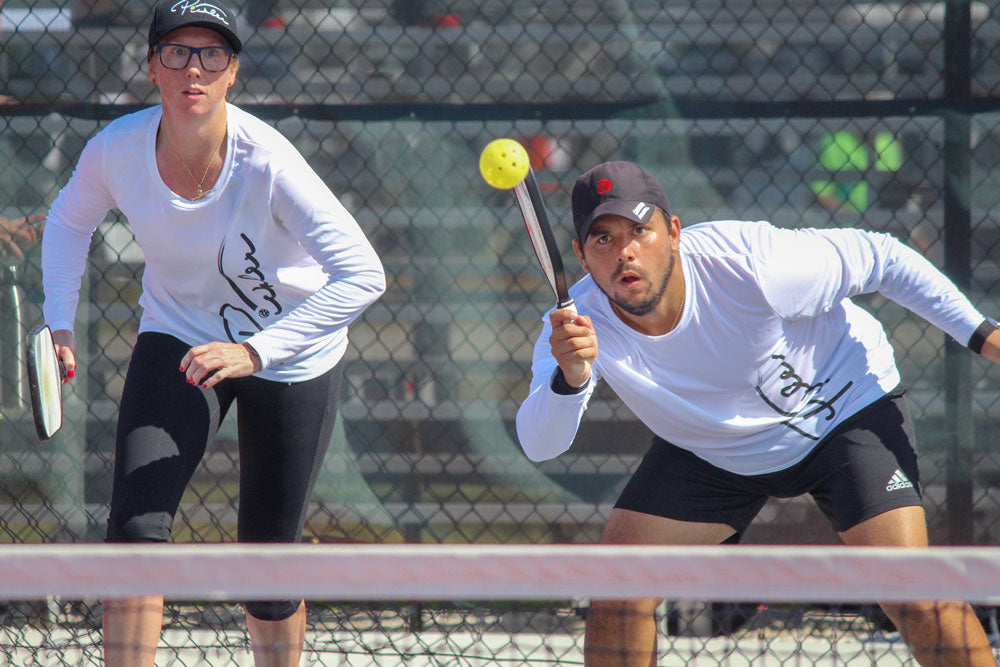
One shot that you do not see often for the third shot is a lob. A lob is a shot in pickleball where you will put some height on the trajectory of the pickleball and send the pickleball relatively high into the air, above your opponents’ heads and, hopefully, out of reach of their outstretched paddles. In pickleball, there are two types of lobs that you can take advantage of:
- A Defensive Lob – A defensive lob is a lob with much more arch (think of a very high up and down trajectory), where you expect your opponents to be able to hit an overhead back at you; and
- An Offensive Lob – An offensive lob is a lob that has a flatter trajectory that is just above the reach of your opponents’ paddle (think of a bridge or a rainbow trajectory just over the outstretched arms of your opponents), where you are trying to win the point. An offensive lob may be good strategy to catch your opponents off guard.
When posing the question of whether a third shot lob is a good idea or a bad idea, we will be focused on the offensive lob. The third shot lob is an advanced shot designed to catch your opponents off guard, rather than a defensive shot to simply stay in the point.
With this general strategy in mind on the third shot and an understanding of what is a third shot lob, is it a good idea or a bad idea to hit a third shot lob? This pickleball blog will answer this question, as well as give some tips to successfully execute a third shot lob for those daring enough to try it.
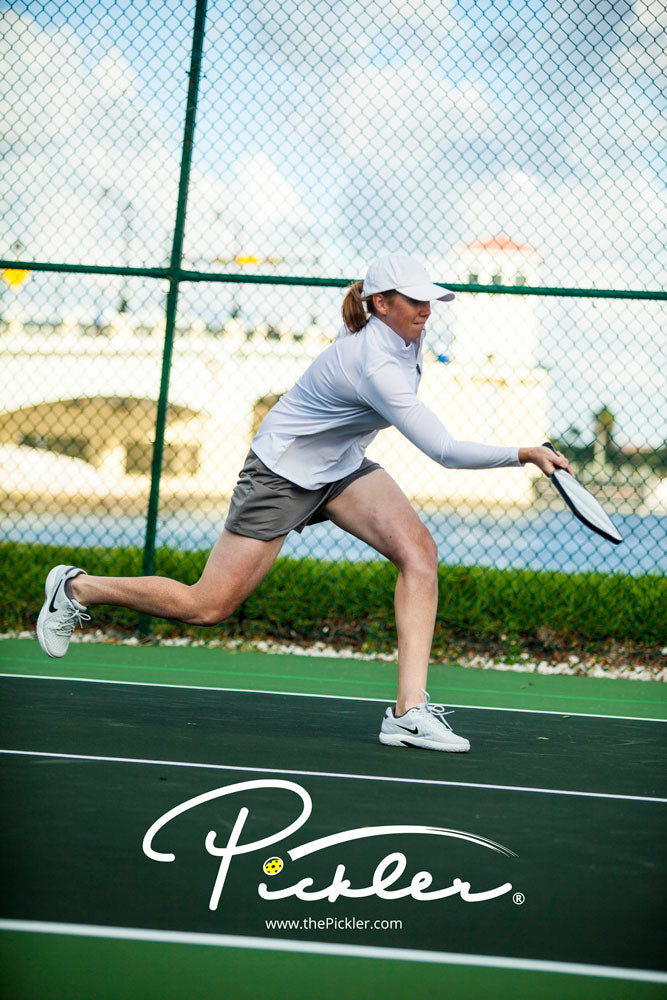
Why the Third Shot Lob Is a Good Idea
As noted above, the third shot lob is a good idea for the following reasons:
- The third shot lob is unusual, so it will be very surprising and catch your opponents off balance. This is especially true if you target the third shot lob over your opponent that returned the serve and is running to the Kitchen line. This is because the opponent that is running is moving in, while your lob will cause that opponent to stop and change to the opposite direction, which can be difficult to do. This difficulty can be amplified if the lob is also targeted to the running opponent’s backhand side (which is commonly the weaker side for pickleball players, as opposed to the forehand side).
- When you hit a third shot lob, you remain unpredictable. The third shot lob, again, is unusual and a very different shot as compared to drives or drops. The threat of the third shot lob may cause your opponents to hesitate when running in, as they could be worried about a shot over their heads if they come in too aggressively. This caution by your opponents may give you some additional space and room for error when hitting your typical drives and drops. Further, the threat of the varying shots will cause your opponents to guess at which shot you will hit, which will add an additional element of pressure on your opponents.
- If your opponents have weak overheads or weak mobility, the third shot lob could be particularly effective, as the lob targets a weakness that your opponents have.
Why the Third Shot Lob Is a Bad Idea
On the other hand, the third shot lob is a bad idea because it is a low percentage shot, as it is more difficult to execute effectively. A poor lob could sail out of bounds, causing you to lose the rally. Or, a poor lob could result in an easy overhead put away shot for your opponents, which will put you either on the defensive or out of the rally entirely. Again, the third shot lob is a bad idea because it is a low percentage shot.
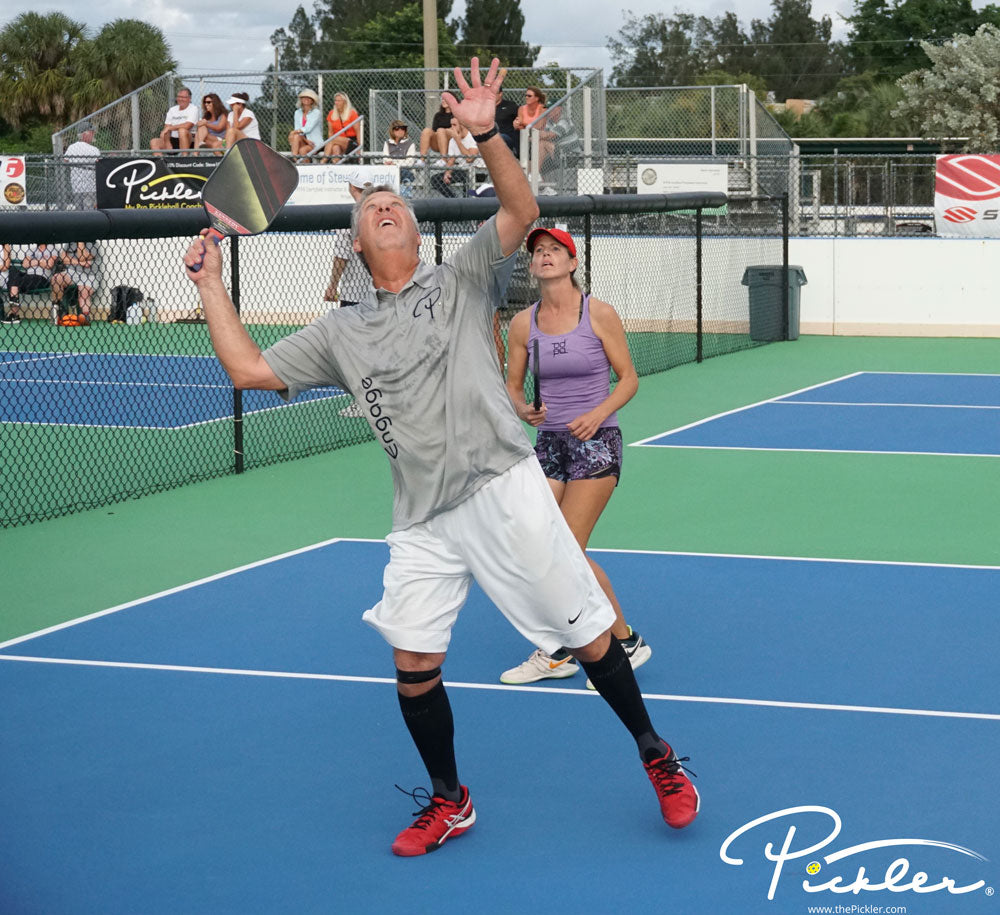
Lastly, if you use the third shot lob too much, or become too predictable with it, then your opponents will hang back off the Non-Volley Zone line and wait for the overhead. To summarize, the third shot lob has very little margin for error and is difficult to execute.
Should You Use the Third Shot Lob?
If you have mastered the third shot drop and third shot drive, then the third shot lob is a good tool to consider adding to your arsenal to help you remain unpredictable on the pickleball court (reigning #1 pickleball players, Ben Johns and Simone Jardim, do it, so it must be a good idea, right?). However, the third shot lob is effective when used sparingly and when your opponents are not expecting it. Consider using the third shot lob against shorter players, players with low mobility, or players with a weak overhead.
Be aware that, sometimes, the third shot lob will not work. For instance, you could sail it long out of bounds or you could hit it short and give your opponents an easy overhead. However, a third shot lob may just get in your opponents’ heads just enough to slow their momentum down to the Non-Volley Zone line, which will give you more room for error on your more commonly hit third shot drops and drives.
6 Keys to Successfully Executing the Third Shot Lob
If you have mastered your third shot drop and third shot drive, and you are ready to take on the somewhat risky third shot lob, consider these 6 keys to successfully executing the third shot lob:
- Preparation – Prepare for the third shot lob in a similar manner as your third shot drop. It is important to disguise the lob, as it is most effective when the lob is unexpected. For instance, if you see a pickleball player standing tall and leaning back – especially when this pickleball player normally bends his or her knees and is moving forward through the pickleball – then they may be hitting a lob. So, be sure to prepare for the third shot lob in the same manner as your third shot drop. This means that you will move your body behind the pickleball with your paddle out in front of your body and below the pickleball.
- Forehands Preferred – Forehand lobs will generally be easier and more consistent than backhand lobs. As a result, as you are moving behind the pickleball, prepare your feet so that the pickleball is off to your forehand side. Then, slightly turn your shoulders and upper body toward your paddle side, bend your knees, and compress your body into your paddle-side hip and knee. Again, this bend and compression motion should be similar to your drop mechanics.
- Short Backswings – Compress under the pickleball and take a short backswing similar to a drop. It is important to disguise this shot as much as possible, so try to limit your backswing while also generating some power to lift the pickleball into the air.
- Out Front & Follow Through – Strike the underside of the pickleball out in front of your body. To note, the key differences between a defensive lob and an offensive lob are (a) the angle of the paddle; and (b) the direction of your follow through. A defensive lob requires an open paddle face toward the sky and a vertical follow through, while an offensive lob requires an angled paddle face with an up-and-out follow through. The third shot lob is an offensive lob. As a result, to hit a third shot lob, your paddle will be more closed and your follow through will be up and out in front of your body.
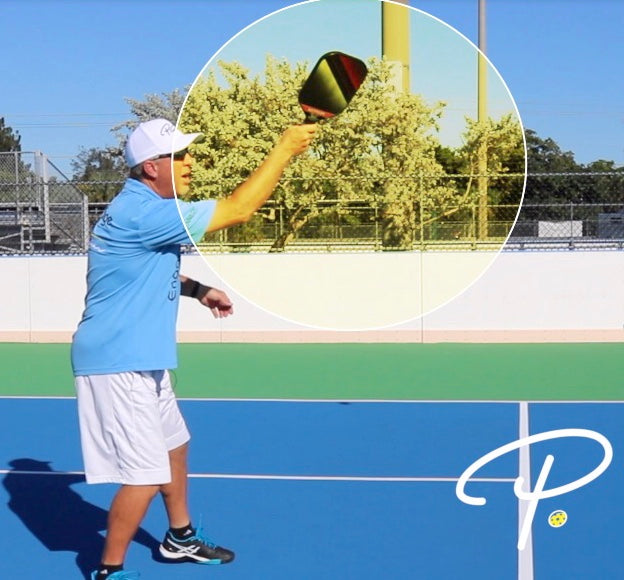
- Court Positioning – Consider hitting the third shot lob when you are inside the baseline and in the Transition Zone. The lob will likely get easier to execute the closer you are to the Non-Volley Zone line. So, avoid hitting the third shot lob if you are back behind the baseline, as your opponents will have too much time to anticipate the lob and hit a solid overhead. In other words, the third shot lob, which is a low percentage shot to begin with, will become even more difficult to execute the farther back in the pickleball court you are.
- Top Spin – To create a more offensive shot, hit your third shot lob with top spin. The top spin on the pickleball will add more pace, which will make it a more difficult shot to track down. The top spin will also help avoid sailing your lob long out of bounds, as the top spin will help pull the pickleball down out of the air and toward the court. To hit a lob with top spin, you will start your paddle from below your contact point of the pickleball and pronate your paddle from each of your wrist, elbow, and shoulder toward the sky. Think of this motion like a windshield wiper with your paddle and each of your wrist, elbow, and shoulder. Your goal is to grip the bottom of the pickleball with the top of your paddle face and roll your paddle up the backside of the pickleball. This friction of the paddle against the backside of the pickleball is how you will generate the proper top spin on the pickleball.
Remember to be picky when using the third shot lob. And, since this is a high-risk shot, before you just whip it out in an important match, it may be a good idea to practice it. It is a tough balance to be unpredictable, while also playing the high percentage shots.
WANT MORE PICKLEBALL TIPS AND STRATEGIES?
If you want more pickleball tips and strategies on every aspect of your pickleball game, check out Pickler’s online video lesson collection called My Pro Pickleball Coach. My Pro Pickleball Coach is a fraction of the price of one clinic or even one lesson, and features over 140 video lessons (over 7 hours of instruction!), as well as a corresponding e-book. These online video lessons are available on demand 24/7 and breakdown every aspect of the sport of pickleball, including pickleball drills, strategy, and advanced concepts, so you will play your best pickleball.

